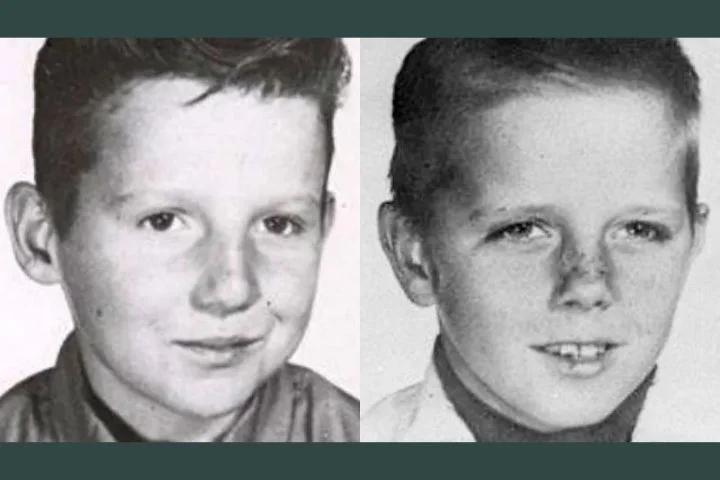Karen Schepers was in a great mood as her work shift drew to a close on Friday, April 16, 1983. The 23-year-old computer programmer had plans to go out with a group of her co-workers from First Chicago Bank Card in Elgin, Illinois that evening, and she had been looking forward to it all week. Several of her colleagues had recently completed a training program and received promotions; to celebrate, they were having a party for them at a nearby bar.
As soon as the work day was over, Karen hurried out the door and climbed into her yellow Toyota Celica. She made a quick stop at her bank to deposit her $1200 tax refund check, then headed to her Elgin apartment so she could change her clothes, then made the 10-minute drive to P.M. Bentley’s tavern in Carpentersville, Illinois. She arrived around 5:30 pm and spent the next several hours socializing with her colleagues.
Earlier in the week, Karen had invited her boyfriend, Terry Schultz, to meet her at the party. When he hadn’t shown up by 9:00 pm, Karen used the bar’s pay phone to call him and ask if he was still coming. He told her that he had a large catering job to complete the following morning — he and his parents owned a restaurant — and he thought it would be best if he skipped the bar and went to bed early. Although Karen hadn’t been very happy with his answer, she didn’t seem to be overly angry.
As the night wore on, the group began to decrease in size. By 1:00 am, all of Karen’s co-workers had left the bar; each of them would later recall that Karen was still at the bar when they left. No one remembered seeing Karen leave the bar, but it is believed she left shortly after 1:00 am. What happened after that is unclear, as neither she nor her car were ever seen again.
Terry tried to call Karen the following afternoon, but got no answer. He left her a message, but wasn’t too concerned when she didn’t return his call. He knew that Karen was going to be the maid of honor at a friend’s upcoming wedding, and many of her weekends were spent helping out with wedding preparations. By Sunday, however, he was starting to think Karen was purposely avoiding him. He worried that she might have been angrier about him missing the party than he initially thought.
Several of Karen’s friends also tried to reach her that weekend; all were unsuccessful. Although it was unlike Karen to go without returning phone calls, everyone assumed that she just had a busy weekend planned. No one thought that anything was seriously wrong.
On Monday morning, Terry called Karen’s work and asked to speak with her. She hadn’t returned any of his calls that weekend, but he figured she would have to talk to him if he called her office. He was surprised to learn that she had never shown up at work that morning, and instantly knew that something had to be terribly wrong. He called the Elgin Police Department and reported her missing.
By the time detectives were informed about Karen’s disappearance, she had already been missing for more than 48 hours. The last place they could conclusively place Karen was at P.M. Bentley’s in the early hours of Saturday morning. They were unable to determine if she made it back to her apartment after leaving the bar, but none of her belongings appeared to be missing or out of place.
Investigators spoke to all of Karen’s co-workers who had been at the bar with her on Friday night. All of them stated that Karen had seemed to be in a good mood, dancing and laughing throughout the night. She had even participated in a hula hoop contest that was held shortly after midnight; she had laughed along with the crowd when her legs locked up and her hula hoop fell to the ground. If she had been annoyed about Terry declining the invitation to join her at the party, she didn’t tell anyone.
Karen had grown up in Iowa and had moved to the Elgin area five years earlier and started working for First Chicago Bank Card. She loved her job, and was known as a reliable and responsible employee. She was the kind of person you could depend on at all times, and it was completely out of her character to miss work and not call anyone.
Karen rarely saw her family; none of them lived in the area and her only real contact with them was by telephone. She spent most of her free time with Terry, who she had been dating for four years. They had talked about getting married on several occasions, and even told some people that they were engaged, but had ultimately decided to hold off on making any wedding plans. Although they had a strong relationship, neither one of them was in any hurry to get married.
When she wasn’t at work or with Terry, Karen preferred to spend her time at home. She loved to sew — she would often make her own clothes — and also enjoyed knitting and playing the piano. She was a good cook, and would sometimes help Terry when he had large catering jobs to complete. She was generally a happy person, and never gave any indication that she was unhappy with her life.
Detectives initially believed that Karen may have voluntarily disappeared; the fact that they couldn’t find her car seemed to back up this theory. They thought it was entirely possible that she had just decided to drive off and take a break from her life. Her friends and co-workers disagreed. They insisted that Karen simply wasn’t the type to walk away from her responsibilities; all of them believed that foul play was involved in her disappearance.
Karen wasn’t in any kind of debt; she had recently paid her car off and had around $8000 in her checking account when she went missing. She certainly had the financial means to disappear if she wanted, but it soon became clear that this wasn’t likely the case. Her bank account remained untouched and none of her credit cards were used; if she had run away, she wasn’t using her own money to support herself.
Detectives were unable to find any indications that foul play had taken place, but told reporters that they were keeping an open mind. The more they learned about Karen, the more apparent it became that she wasn’t the type of person one would expect to voluntarily run away from her life. They appealed to the public for help in locating the missing woman or her car, and asked anyone who might have seen Karen after she left P.M. Bentley’s to contact them.
Karen’s father, Loren, hadn’t seen his daughter in more than three years. Loren was an airline pilot, and when he learned his daughter was missing he immediately flew to Illinois to help in the search. As soon as he arrived on Tuesday morning, he rented a small plane. He and Terry spent the next two days flying over the Elgin area, hoping to spot Karen’s bright yellow car. Thinking perhaps she might have gotten into an accident and driven her car off the side of a road, they paid close attention to the route she would have taken home from the bar. They found nothing.
They expanded their search on the second day, concentrating on creeks and river beds. By the time they were finished, they had covered all areas in a 50-mile radius of Elgin. They found no clues to Karen’s whereabouts. Police helicopters had also flown over the area; they too found nothing to indicate that Karen had run off the road or ended up in any of the bodies of water in the area.
Detectives interviewed Terry intensively; since he was Karen’s boyfriend, he was a natural person of interest. He cooperated fully with the investigation and volunteered to take a polygraph examination, which he passed. He was eliminated as a suspect, and continued to take an active role in the search for Karen. In a way, he blamed himself for her disappearance. If he had only met up with Karen at the bar that night, she might not have vanished.
The investigation into Karen’s disappearance went cold almost immediately. Detectives had no proof of foul play, no crime scene to investigate, and no clues as to where Karen might be. Few tips came in about the case, and investigators exhausted all leads within a few months. By the time the new year rolled around, the case was ice cold.
Karen’s friends and family continued to search for her on their own, and her co-workers pooled their money and offered a large reward for any information leading to Karen’s recovery or the person responsible for her disappearance. Her family hung missing person posters all over the Elgin area and conducted several physical searches for Karen. Despite their efforts, neither Karen nor her car have ever been located.
Over the years, Karen’s case has been reopened several times, but no solid leads have ever been developed. In 2008, cold case detectives arranged to have seven billboards with information about her disappearance placed alongside several highways in Elgin in an attempt to revive interest in the case. Investigators also reinterviewed people who had known Karen and went back over the original case file, searching in vain for some nugget of information that may have been overlooked during the initial investigation. They conducted a few small physical searches and also used sonar to scan several bodies of water near where Karen was last seen. Unfortunately, they found nothing relevant to the investigation.
Karen has now been missing for more than 38 years, and detectives admit that the chances of solving the case are slim. However, they think it’s possible there are people in the Elgin area who know what happened to Karen and can give investigators the information they need to finally solve her disappearance.
Karen Schepers was 23 years old when she went missing in 1983. She has brown eyes and brown hair, and at the time of her disappearance she was 5 feet 7 inches tall and weighed 125 pounds. Although it’s unknown what she was wearing when last seen, she normally wore a tan corduroy coat with a hood and a gold Wittenauer watch. She was driving a yellow 1980 Toyota Celica hatchback with red pinstripes, Illinois license plate number XP8919, and VIN RA42326350. If you have any information about Karen, please contact the Elgin Police Department at 847–289–2700.






